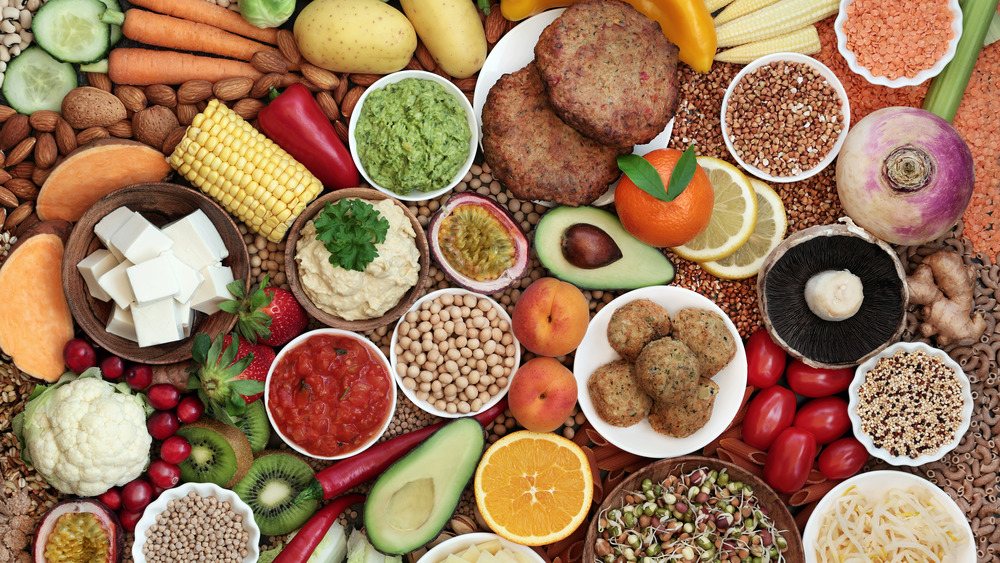Swapping Out This Ingredient Can Lower Your Heart Disease Risk
Keep the veggie chili and hold the hot dog: Substituting red beans for processed red meats such as hot dogs, sausages, bacon, and salami can reduce your risk of coronary heart disease, according to a new study published in the medical journal The BMJ.
The findings reconfirm advice that health professionals have noted for years about incorporating more plant-based foods into one's diet. A 2017 study published in JAMA, for instance, noted that replacing just 3 percent of animal protein with plant protein such as beans, legumes, nuts, and seeds was associated with a 19 percent lower risk of mortality, no matter the cause (via Harvard Health Publishing). Fruits, vegetables, and proteins from a plant-based diet also can protect our health when we do occasionally eat meat by providing us with nutrients called antioxidants. These foods also lower our body mass index, improving overall nutrition.
In the new study, published this month, researchers from Harvard Medical School and Harvard TH Chan School of Public Health, both in Boston, Massachusetts, based their findings on observing 43,272 men in the United States for about 30 years. The men had an average age of 53, and none had cancer or cardiac disease when they enrolled in the study in 1986, the researchers said. The participants filled in a detailed diet questionnaire every four years. Researchers also documented 4,456 incidents of coronary heart disease among them during the study period; 1,860 of those were fatal (via Healthline).
Just one serving of plant-based protein per day can make a significant difference
Nicole Roach, RD, CDN, a registered dietitian at Lenox Hill Hospital in New York City, told Healthline that although a lot of research over the years has documented the benefits of plant-based and Mediterranean diets, this latest study examines "significant factors such as the amount of red meat consumed and whether the meat is processed."
The study found that for every one serving per day, any type of red meat was associated with a 12 percent higher risk of coronary heart disease. Processed red meat (such as lunchmeat) carried a higher risk of 15 percent. By comparison, consuming one serving per day of combined plant sources such as soy, legumes, and nuts was associated with a 14 percent lower risk of coronary heart disease.
Plant-based proteins, whole grains, and dairy products increase the body's fiber, unsaturated fat, antioxidants, and polyphenols, "all of which can benefit heart health by either increasing protective cholesterol, reducing bad cholesterol, or improving the function of the heart's blood vessels," Roach told Healthline.


